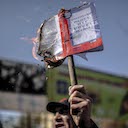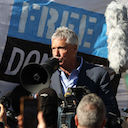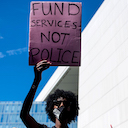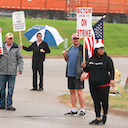
How to Repair the Planet
In Reconsidering Reparations, Olúfẹ́mi O. Táíwò makes the case for a political project with a global scope.


In Reconsidering Reparations, Olúfẹ́mi O. Táíwò makes the case for a political project with a global scope.

By telling her story, tennis champion Peng Shuai revealed how a violent power structure hides its violence, and the perverse way in which it drags in its victims.

Artificial intelligence has often been adopted in ways that reinforce exploitation and domination. But that doesn’t mean we should greet all new AI tools with refusal.

Desire is shaped by social assumptions and prejudices, Amia Srinivasan argues in The Right to Sex. So what does one do about it?

The election of Gabriel Boric and the ongoing process to write a new constitution present a historic opportunity for the left to shape a new social pact in Chile.

An interview with Amitav Ghosh, the author of The Nutmeg’s Curse: Parables for a Planet in Crisis.

The world’s richest countries have undermined the international cooperation we need to end this pandemic.

The oil company hopes that the imprisonment of Steven Donziger has a chilling effect on environmental litigation. But it might have galvanized a new generation to take on the fossil fuel industry.

In The Great Recoil, Paolo Gerbaudo argues that the left needs to speak to people’s fears and connect them to hope.

An interview with Derecka Purnell, the author of Becoming Abolitionists, about what makes communities unsafe—and how she went from calling 911 to fighting for abolition.

A prolific writer and researcher for seven decades, Miller’s greatest talent was putting that knowledge to work on behalf of activist groups in the United States and around the world.

Rebecca Hall’s adaptation of Nella Larsen’s 1929 novel continues the author’s exploration of the suffocating strictures of the color line.

We sorely need one, but that first requires the unionization of millions of new workers.

In the early 2000s, activists began to campaign against the extraction of “conflict minerals.” Today, violence continues unabated in eastern Congo, underscoring the misguided frameworks governing transnational intervention.

In the spectacularly violent world of Squid Game, exploitation and brutality are built on the illusion of choice.